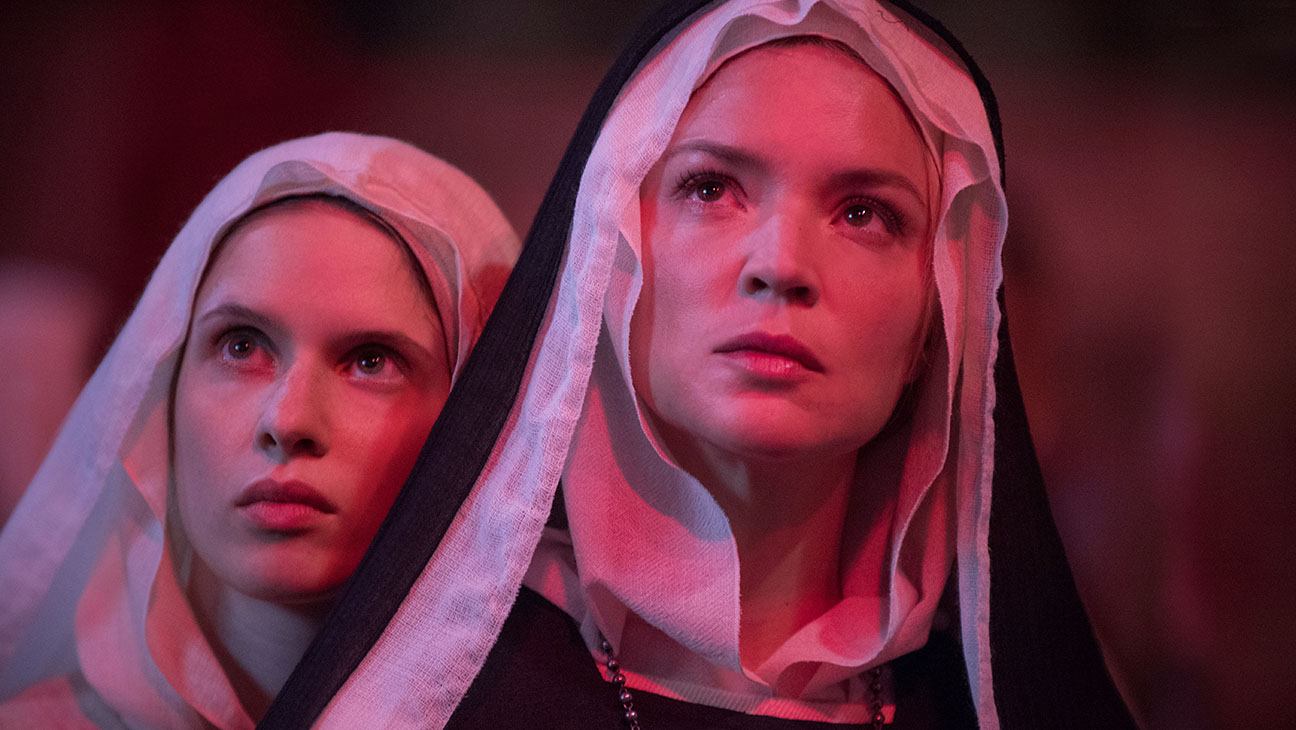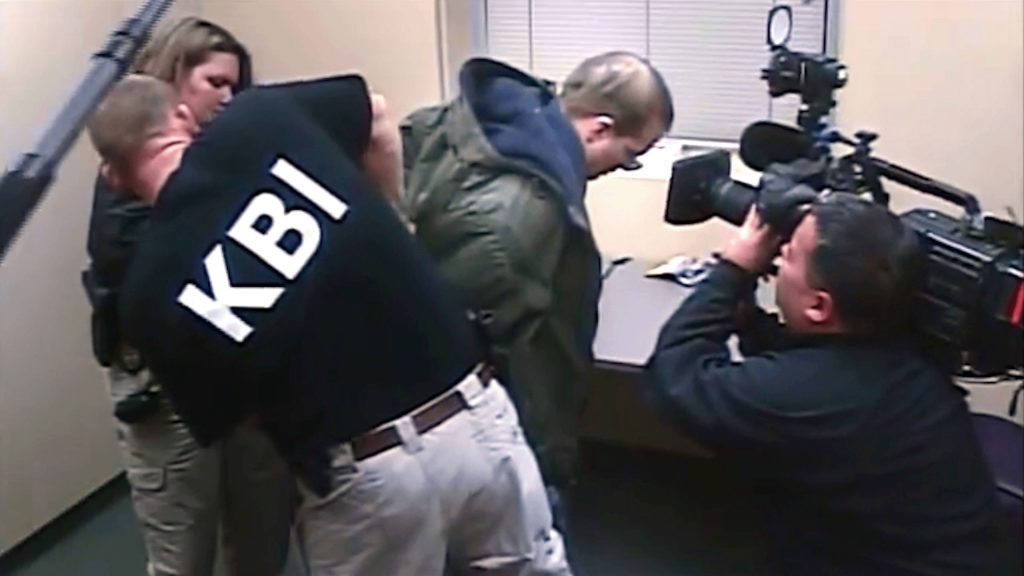Paul Verhoeven’s Benedetta is a truly strange brew, coupling probing, thoughtful questions of faith and religion with the kind of sexual ribaldry and scatological humor you’d expect from a picture that’s already being shorthanded as “the lesbian nun movie” (or, to borrow the throwback terminology, “nun-spoloitation”). That incongruity is present from the first scenes, in which a high, clear voice is heard singing a requiem over the opening credits, a title card informs us that “This film was inspired by real events,” and a little girl of great faith and great gifts is seen heading to a convent in the Italian village of Pescia – and seems to command a passing bird to shit in the eye of a villain who harasses her.
You can get whiplash from tonal turns like that, but that’s nothing new for Verhoeven, who’s all but made a career out of making his audiences (and no small number of his critics) question how much of what he’s up to is a joke. Sometimes, those delineations are clear; when the little girl (and title character) arrives at the convent, there is a bit of haggling with the Mother Sister (Charlotte Rampling) over the “dowry” her father is offering. (This is the beginning of a runner – Verhoeven and David Birke’s screenplay mines considerable humor out of the great financial necessities of the church, and the influence of those necessities on its decision-making.)
Eighteen years later, Benedetta (played as an adult by Virginie Efira, who also co-starred in Verhoeven’s Elle) is a shining light of the convent – so much so that she occasionally has visions of Jesus himself. Enter Bartolomea (Daphne Patakia), a young woman abused by her father who is taken in by the convent. There is an immediate chemistry and curiosity between Benedetta and Bartolomea, which the former does her best to deny, and even repel. It’s in this thick brew of repression that her visions (and nightmares) become clearer, and the attraction becomes undeniable.
Verhoeven loves to have it both ways – he takes what’s happening between these two women seriously, but he also can’t resist having a giggle at the prurient elements. Some of that is deliberately nuanced; their interactions are playful, and it’s helpful to remember that in the full realm of sexuality, silliness is not only allowed but advisable. But he’s also using sexual attraction to (as the Twitter scolds insist no one does) further the story. It takes a lifetime of making movies that deal, in different ways, with eroticism, to learn how to build up to a sex scene the way he does here. It’s a barnburner – and one where the inevitable gasps of “My God” pack an extra punch.
That material is provocative, and Verhoeven clearly sees himself as a provocateur. When he stages a sequence where Jesus, on white horseback, saves Benedetta from a rape and then turns into a rapist himself, the director knows he’s playing with dynamite, toying with the most loaded of symbols and ideas, seen as both divine and dirty (and that’s before he even gets to the Virgin Mary dildo), and seeing the rituals of the religion through a psycho-sexual lens.

But Benedetta is ultimately about her visions – and their legitimacy. If Christ has shown himself to her, and passed his stigmata to her, then she would be a saint, which would obviously prove advantageous to both her and her convent. So are these visions genuine? Or merely manifestations of her newfound desire? Or both? Could a spiritual awakening also be a sexual awakening? “I don’t know how God makes things happen,” Benedetta explains. “But his will is done through me.”
These are, to put it mildly, more serious questions of faith than we might expect from a heaving-bosom Sapphic melodrama. But Vehoeven and Birke’s script, loosely based on Judith Brown’s book Immodest Acts: The Life of a Lesbian Nun in Renaissance Italy, poses plenty of them, while keeping the pace lively and finding the right mixture of contemporary vernacular and period language in the dialogue; the phrase “bring her to crisis” is a particularly nice touch. (And though the film was shot in 2018, there are some awfully uncomfortable allusions in its plague plotline.)
Rampling provides something akin to comic relief, in her wary characterization and bone-dry line deliveries; even in her first scene, a mere reaction shot gets as big a laugh as her dialogue, and her dialogue is razor sharp (“I never wanted her to die… not so quickly, at least”). But there’s also a deep sense of melancholy to the character – of religion, she muses, “It may be vain and hopeless, but I’ve devoted my life to it” – and she has one moment of raw, visceral horror and pain that really stings.
Benedetta is obviously the trickiest role, and Efira is well suited to it; this is masterful performance, capturing the character’s complicated arc, from tentativeness to confidence to invincibility. Newcomer Patakia, as Bartolomea, has the less showy part to play, but she acquits herself nicely; she seems to understand that her journey is the mirror image of Bendetta’s, and that they are merely passing and intersecting on their way.
The deeper Benedetta goes, the slipperier it gets, and by the time Verhoeven arrives at its conclusion, there’s nothing he can do but go for it, ending the picture in the only logical fashion: outright mayhem. Do all the pieces fit together? Absolutely not. But it’s a movie that only this filmmaker could have made, at this point in his career, and we’re all luckier for that.
B
“Benedetta” is out Friday in theaters.



